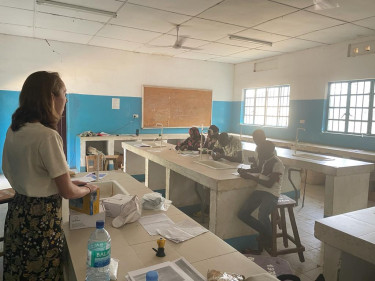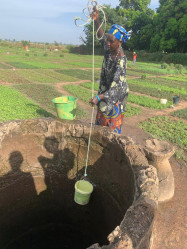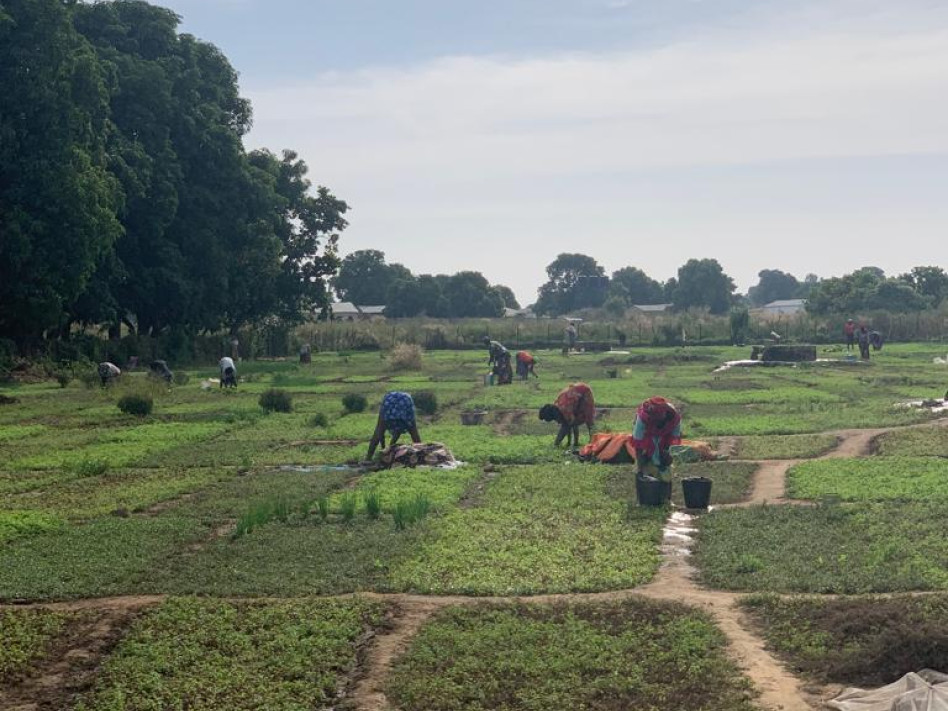After our 10-week preparation in the Netherlands, we left for Gambia. During our preparations, we built a small hydroponic system to test how it works. By doing so, we think we will be better able to explain it to the local people in The Gambia and actually build it with local materials.
In the first week, we mainly oriented ourselves to the country, the culture and the people. We visited several schools and talked and lived with local people. We also met all the people who will be involved in our project. First, we had a meeting with Aziz. He is the manager of the Agriculture Centre where we will eventually conduct workshops on the system we built. Then we went to the community garden in Kuntaur where the women work with whom we eventually want to implement and leave the system. They were immediately very excited that we are there and are looking forward to working together. There is a committee of women with whom we can keep in touch and who are in charge within the group. Finally, we visited the school where we are going to develop the hydroponics system together with the students. We talked about our expectations and their expectations and planning. The school is also very excited to work together and they have already made a seedbed in which lettuce is growing. This will allow us to pot the plants immediately once we have built the system.

In the second week, we started explaining hydroponics to the students. It is important that they know everything about it before we actually start building. We then worked with them to prepare an interview to conduct with the women in the community gardens to look at the biggest problems they are currently facing. Together with the students, we went to three different community gardens and they interviewed the women. We also went back to the community garden in Kuntaur to interview two more women. The main outcomes of the interviews are:

-
There is not enough water. There are too few wells to provide enough water for all the women to cultivate.
-
Expansion of gardens was possible in terms of land, but lack of water makes it impossible to grow more.
-
They suffer from animals eating the crops like monkeys, hippos, cows and goats.
-
They have no knowledge of other methods. They only use the method they already know.
-
Drawing and carrying the water from the well is physically very tough. They get chest pains from this.
-
Persistent weeds and acidic soil.
Applying a hydroponics system seems to solve many of these problems. We also told the women about the technique and they are very excited about it. They think it could also work in The Gambia.

